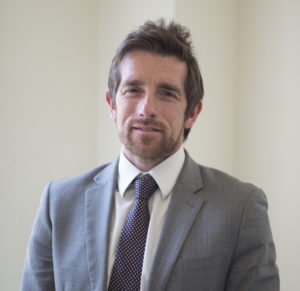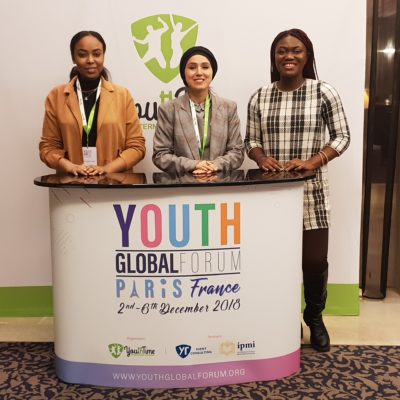“There is inequality in access to higher education in every country in the world where we have evidence. Higher education is causing inequality when it should be solving it.”
To address this issue the World Access to Higher Education Day (WAHED) 2018 is organized on the 28 November 2018 in the UK and in Australia. The event is an attempt to initiate larger collaboration between organizations working towards equality in education and aims to facilitate dialogue. WAHED is organized by the UK National Education Opportunities Network (NEON), which is a professional organization that supports widening access and equity in higher education in the UK. NEON has set itself four objectives, namely to widen access through the development and accreditation of practice, to be a research and advocacy resource, to enhance quality in widening access work and to support policy-makers and government.
Patricia Senge sat down with the director of NEON, Dr. Graeme Atherton, to discuss the issue of global inequality to access to higher education.
Dr. Graeme Atherton, could you please briefly address NEON’s approach to achieving its four objectives?
Apart from organizing conferences and events, NEON also does research and advocacy in the area of access to higher education. We publish research reports focusing especially on students finance regime. As you know, England is one of the most expensive places in the world to go to university. This not only impacts whether someone goes to university or not, but it largely influences where a student chooses to study. We found that still a lot of young people go to higher education in England despite the high tuition fees. Nevertheless, the cost of higher education will affect the experience they have when they are in higher education.
It is not just the students our research focuses on, but also on policy makers and government officials. Through our research we try to influence their thinking and thereby policy in that particular field.
The majority of the work that we support is outreach work, giving prospective students guidance regarding higher education. Particularly, to people who have not received that same level of support from their school or families. This quite often is not because families do not want to see their child going to higher education, but because they themselves have not gone through it and might not understand the system.
Regarding our advocacy work, we especially focus on providing information to students on opportunities to receive support and on improving the cost of higher education. We do a lot of work trying to show how and where it can be improved and intent to advice policy makers how to do so. For instance, while there is a loan system where you could borrow the cost for the tuition fees and living costs in the UK, there should also be grants available for particular socio-economic backgrounds. There used to be, but not anymore.
The tuition fee debate has changed in the UK. While it is still expensive, I believe that it will become less expensive to the extent that students who need the support or aid have the possibility to receive it.
“Our view is that equity and access work is often not core to what the universities are doing.” Dr. Graeme Atherton, Director of NEON
What exactly can we expect from WAHED this year? And for those curious now, can we expect this initiative to repeat itself in the coming years?
We see WAHED as a combination of very different activities and plan on repeating the event in 2019 as well. Our goal is trying to engage any country and as many organizations in delivering activities or in highlighting access and equity issues through the work they do. It is very much about that collective effort and awareness raising. Particularly, we hope to develop stronger links between students and organizations across the world that share common goals.
“Labour market opportunities should not be the only benefit of higher education!”
Many students see education as a path to socioeconomic mobility. Students are told to think of their future – better education means higher chances for a better job. Is this a very shortsighted and simplistic way of seeing things?
I think that everyone who went through higher education has different outcomes. The evidence across countries generally shows that those who go on to university have better life and job opportunities but there are no certainties. In every country that we have observed the chances have increased through higher education, which doesn’t mean that in every country this means that you are automatically successful. They are chances, but not certainties – we need to remember that.
Labour market opportunities should, however, not be the only benefit of higher education. Higher education systems should have other benefits as well. University education should include the enhancement of life-skills and knowledge awareness – also of the world and the challenges we face in the 21stcentury. If we think about the challenges we face globally and the knowledge and skills we need; we live in a world where technology is increasingly shaping what we do. The big issues around technology are not actually technical. Whereas the technical knowledge is there, many issues are ethical. Do we have the knowledge to grasp and understand the implications of technology? The awareness and knowledge to be able to deal with these issues?
Also, we see across the world issues especially concerning populism and nationalism – issues where higher education is crucial in helping people making form decisions about their futures. Finally, when looking at one of the biggest challenges we are facing, climate change, we also know that there is a regulation shift between awareness, knowledge and responsiveness to climate change issues and education. Higher level of education generally means you are more aware of the issue of climate change and more prepared and able to make the changes necessary.
When seeing education as a way to escape poverty, some courses such as business, economics or computer sciences are more appealing than programs in the field of arts and social sciences. Do you believe it is more important to experience an intellectual awakening in any field of study than study to increase future earnings? In other words, what is more important when choosing a university program: intellectual curiosity or financial security?
I would argue that this depends on the individual. You can make a stable choice, where the odds of financial security are better. The individual has to be prepared to work in that field, needs to be able to understand the environment and have the skills that are needed. You have to be prepared for your choice.
It is important to understand that when you graduate you will have a life and career that revolves around those traits and areas. Many people go into the arts because they have a passion and desire for it. If the passion is that strong many do not want to have a structured job in another field such as science or economics. When you go into the more creative areas you need a certain set of skills. It is not enough to be good in your fields. For instance, when being an actor: there is only a minority of people experiencing the real heights. In all the jobs involved with creative arts you have to be well-organized. When making choices of the course of higher education is important to understand what one is making choices about. In the end it is not just about the study program. Because when you graduate and get into that field, it might be different from what one thought it was going to be.
Many universities are also understanding that and are now trying to put more creativity into the system, and more life-long learning. Whereas we used to create education for certain jobs, we now approach a more multidisciplinary learning approach preparing students for new jobs interconnecting various fields. Multidisciplinarity is hence a clear advantage for students after graduating and entering the job market.
Next, I would like to discuss the progress made by widening access to higher education for disabled students. Many continue to face a series of disadvantages, including physical access, lack of additional support and the negotiation of identity. What are your personal thoughts on it?
It is absolutely crucial that students that might be restricted have equal access to all universities. We are slowly improving this situation. You can see more and more students being diagnosed with for instance dyslexia. Universities which are often very hierarchical need time to adjust to those changes. They are usually not as flexible. But with time this will improve. They are certainly doing it in the UK. It is also absolutely crucial for those students to be aware of the support that is available for them and that they do not put off by the fact that they will not be supported.
Also, these students have a crucial role to play in this by helping universities understand what the needs are and pushing for the necessary changes – as mentioned they do change slowly.
In your opinion, what are the most important changes that have to happen with regard to widening access to higher education?
At policy level I would like to see all countries have strong targets regarding who should access higher education. Targets should include a percentage of students from certain economic backgrounds, students with disabilities and for particular ethnic groups. Currently, there aren’t enough targets in many countries and I believe there should be. When having such targets on national level, policy-makers are obliged to put more efforts towards achieving these. For instance, through advocating and mobilizing certain groups.
To give you an example on an achievement at policy level: in Scotland there is a target that all children born in 2012 should have the same chance to enter HE no matter what socio-economic background they are from when reaching the age of 18.
At the level of University, hence, when addressing the higher education providers, I would like to see universities placing equity as a value and as a goal alongside research and teaching. This would lead to higher investments and placing more resources in making the institution more inclusive. This would allow for pre-higher education work, approaching especially schools of certain areas or for the academic staff to attend a certain training regarding diversity and inclusion helping them understand the different needs of student groups and where those needs come from.
In the end it is about the level of values of an institution. It is important to care and think about one’s responsibilities and commitments in this area. Quite often the issue of who will go to higher education is not seen as the issue and responsibility of universities and that needs to change!





